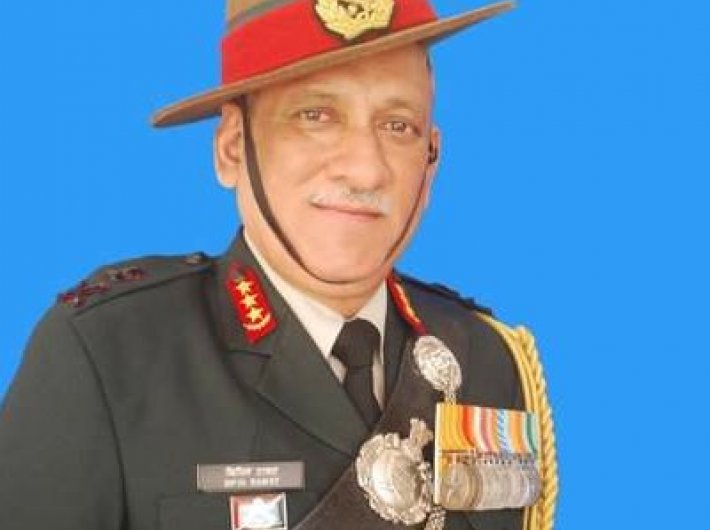Army chief General Bipin Rawat personally oversaw the defence preparedness in Sikkim, amid Chinese media’s vituperative comment on India and escalating tension between the two countries over the Doklam plateau where Chinese army’s efforts to construct a road is being resisted by the Indian army.
It indicates India is not going to budge before the Chinese pressure on the plateau, which actually falls within Bhutan, a tiny Himalayan nation whose territorial protection is India’s responsibility.
Although Thimpu has issued a demarche to China’s Delhi-based diplomat over China’s insistence on constructing a road from Doklam plateau to Doka-La, an area falling on the Line of Actual Control (LAC), Beijing is reluctant to understand the diplomatic language.
In fact, believing in ‘might is right’ dictum, Beijing wants to forcibly open a way into Bhutanese territory, which India believes, could lead to compromise on the security of both India and Bhutan. Showing their aggression, Chinese army demolished Indian soldiers’ two bunkers and stopped pilgrims’ movement to Kailash Mansarovar. Known for its foxiness, China also lodged a protest with India on the issue, a first of kind from Beijing in long, but festering relations between the two countries.
This it did to portray its victimhood picture before the media. It was timed well. It did so when prime minister Narendra Modi was meeting US president Donald Trump in the White House. Those who know China, have no confusion about its expansionist agenda. It has forcibly taken away from Vietnam and the Philippines, their coral reefs and islands lying in the South China Sea and then made an artificial island over it.
In July 2016, an international tribunal, the Permanent Court of Arbitration (PCA) in The Hague, rejected Beijing’s claim over the South China Sea on which Brunei, Indonesia, Malaysia, Taiwan, Vietnam and the Philippines have their territorial claims also. Despite this, China, in pursuance of its aggressive design, not only disobeyed the ruling, but also made it clear that its claim over the South China Sea would not be compromised. Then its dispute with Japan over the Senkaku Islands, a group of uninhabited islands in the East China Sea is well documented fact. China which calls these islands as Diaoyu islands, lays claim on them.
But India is calling a spade a spade. It has no plan to cede an inch to China. However, the current India-China face off at Doklam plateau reminds one about 1988 when the Chinese troops crossed into Bhutan and took control of the Chumbi Valley, lying below the Doklam plateau. After several days of face-off, Chinese troops had withdrawn from the area. This time, however, it has to be seen how PLA soldiers respond.
Already more than a week has passed and they are staying put in Doklam plateau. Experts suggest that New Delhi should not give in to the Chinese pressure, because their occupying Doklam plateau means strategic loss for Indian soldiers over Chumbi Valley. It also means giving Chinese soldiers an opportunity to reach up to Chicken neck, the Siliguri corridor that connects mainland India with the country’s North-East.
For years, China seems to be harbouring a design to cut off Northeast states from mainland India. It has received a push after the arrival of Xi Jinping at the helm of affairs of China.
India is not deterred by China’s might. Despite its economy, as experts suggests, being one third of China and defence budget almost a quarter of Beijing, New Delhi is quietly doing what suits its national interest. Besides, developing infrastructure in Northeast and Leh, it is strengthening the defence muscle.

